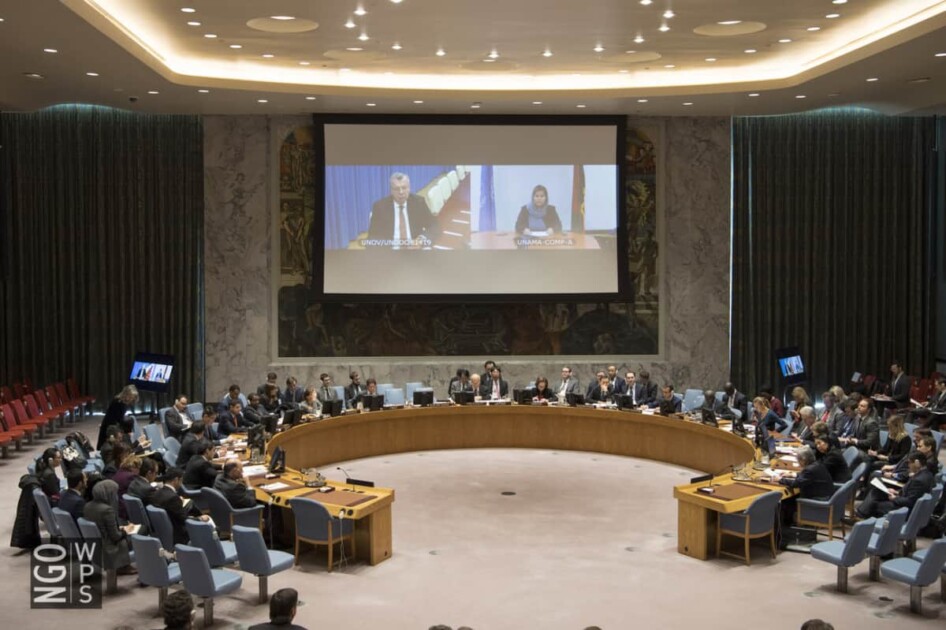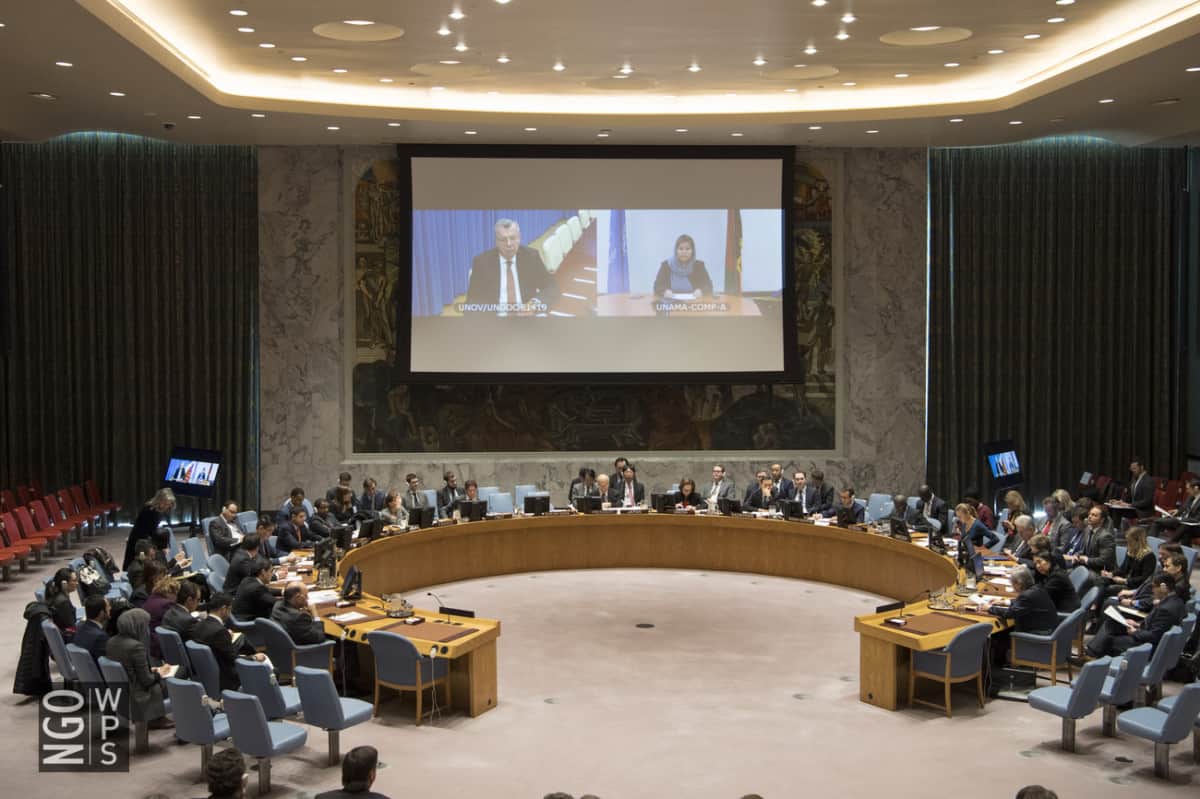Democratic Republic of the Congo
Women in the Democratic Republic of Congo continue to face widespread sexual violence, disease, and displacement in conflict situations arising from clashes between dozens of armed groups. Often, sexual violence and rape are used as terror tactics and weapons of war, and despite the ratification of the Convention on the Elimination of All Forms of Discrimination against Women (CEDAW) and the Women’s Platform for the Peace, Security and Cooperation Framework, women are still largely underrepresented in peacebuilding efforts. Additionally, women activists face rape as a form of torture by government actors who disagree with their political activity. The United Nations Organization Stabilization Mission in the DRC (MONUSCO) aims to provide protection for civilians, including reducing the threat of armed groups perpetrating sexual and gender-based violence, monitoring and reporting on sexual violence and ensuring women’s participation in stabilization and national political dialogue.
Democratic Republic of the Congo
Women in the Democratic Republic of the Congo continue to face widespread sexual violence, disease, and displacement in conflict situations arising from clashes between dozens of armed groups. Often, sexual violence and rape are used as terror tactics and weapons of war, and despite the ratification of the Convention on the Elimination of All Forms of Discrimination against Women (CEDAW), and the Women’s Platform for the Peace, Security and Cooperation Framework, women are still largely underrepresented in peacebuilding efforts.
Additionally, women activists face rape as a form of torture by government actors who disagree with their political activity. The United Nations Organization Stabilization Mission in the DRC (MONUSCO) aims to provide protection for civilians, including reducing the threat of armed groups perpetrating sexual and gender-based violence, monitoring and reporting on sexual violence and ensuring women’s participation in stabilization and national political dialogue.
Current and Past Recommendations to the UN Security Council (Monthly Action Points)
The Security Council is expected to renew the mandate and consider a report of the UN Organization Stabilization Mission in the Democratic Republic of Congo (MONUSCO). The existing provisions of MONUSCO’s mandate related to WPS must be maintained (S/RES/2348 (2017), OPs 34(i)(b), 37). Further, the Council should (1) call for MONUSCO to support women’s participation in reconciliation processes, elections, and SSR; (2) include a provision in MONUSCO’s mandate to monitor threats to civil society organizations (CSOs) and restrictions on democratic space (S/RES/2122 (2013), OP 4); (3) support the Government’s ongoing review of the NAP on Resolution 1325 (2000) (S/RES/2242 (2015), OP 2); and (4) urge the Government and MONUSCO to prioritize the protection of women politicians, candidates, activities and human rights defenders in the implementation of the political agreement and the NAP, including through the revitalization of MONUSCO’s Gender Unit (CEDAW/C/COD/CO/6-7). Although women comprise 47% of the electorate, significant barriers to women’s representation and participation in political and security processes remain (S/2018/16). Further, significant concerns have been raised regarding the newly signed electoral law, which contravenes the full parity enshrined in the Constitution. The law could result in indirect discrimination, as it requires candidates to pay a non-refundable fee of $100,000 USD for the presidential election, $1,000 for legislative elections, $ 625 for provincial elections, and $ 313 for local elections, and to have a college degree or 5 years of professional experience. The law further hampers the participation of smaller political groups by increasing the threshold of representation at the national level to 1% of the votes, 3% at the provincial level and 10% at the local level. The restrictions to democratic space throughout the country, including the violent repression of peaceful protests in Kinshasa and other cities by security forces over the last two months, and the ongoing targeting, through judicial proceedings and other means, of civil society activists seeking to legitimately exercise their rights to freedom of expression, religion and peaceful assembly, should also be of concern to the Council (S/2017/565).
Relevant Resources











